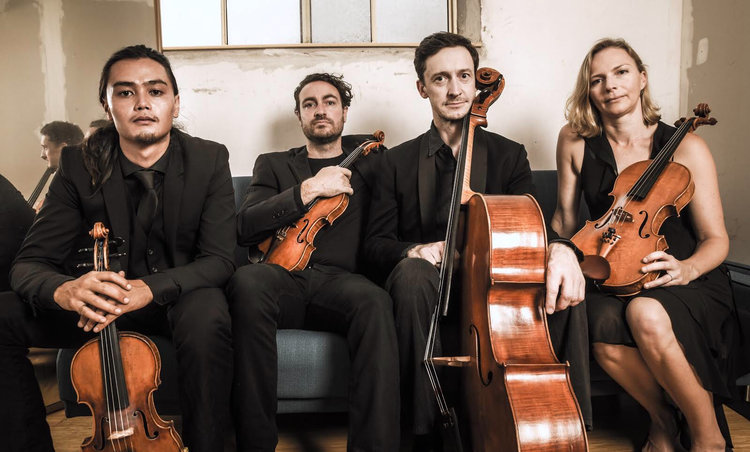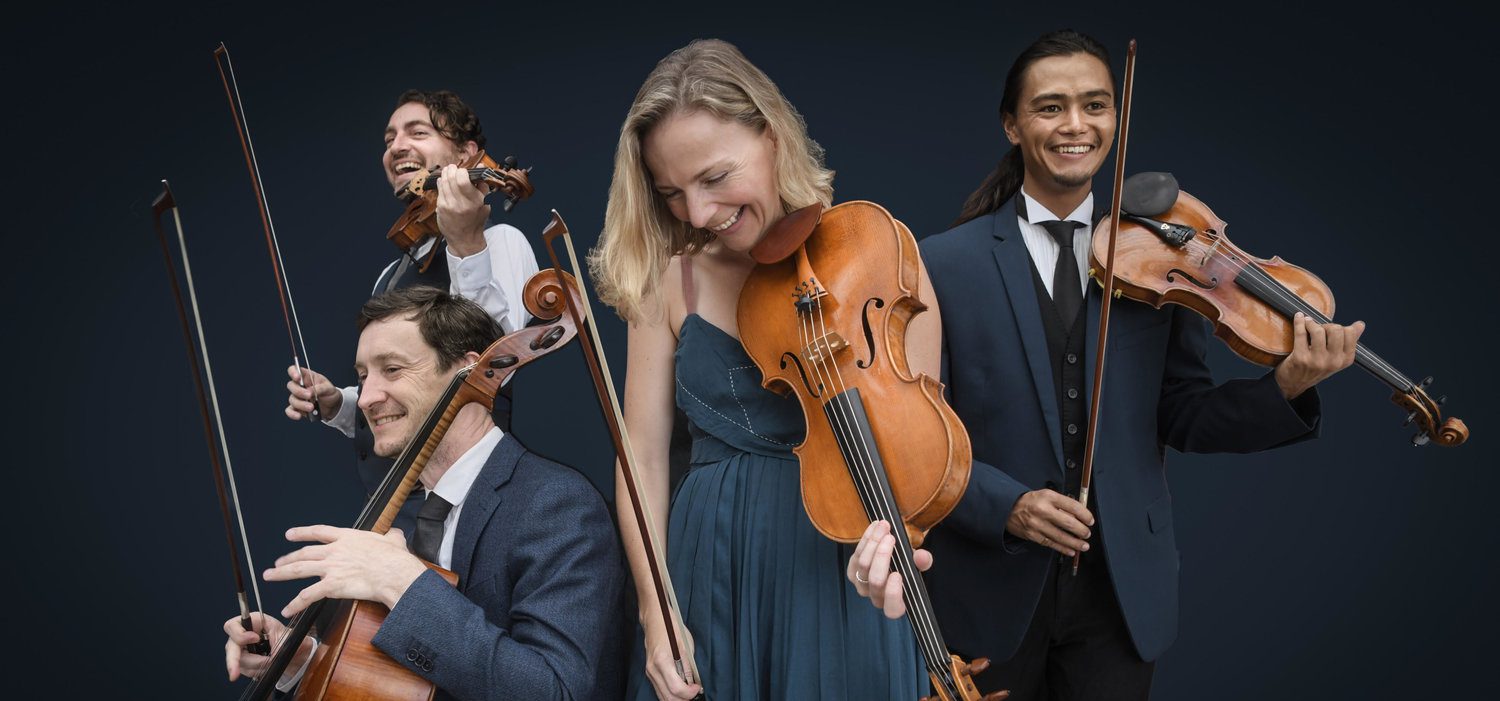Old and new combine, overcoming a rocky start to conclude with a spectacular finish.
Finding inspiration in ‘mechanics, wheels, cogs and construction’, the Phoenix Collective Quartet’s Intricate Machines is a tour de force of new music.
Featuring famous works by composers both old and new – think Bach alongside Reich and Arvo Pärt – this fresh and imaginative performance makes even the ancient seem modern.

The evening was divided into two parts; the first included Bach’s Art of Fugue, followed by Steve Reich’s Different Trains. The second, Arvo Pärt’s Fratres, the Australian première of Sarah Wallin-Huff’s Anima Mechanicae and Dvorak’s American.
If Reich’s Different Trains represents the movement of a train, it loses direction toward the end. Beginning with an electronic recording and a series of open fifths and fourths on the strings, the linearity of the viola and cello was disturbed occasionally by the rupture of the strikingly high violin notes. But while independence of voice was clear, there was, at times, a noticeable absence of coordination and unity attributable to lack of eye contact.
As a result, there were awkward and protracted gaps when paradiddle rhythms became more prominent throughout each movement. But these are minor quibbles for a performance that outshone all expectations.
Pärt’s ‘mystical minimalism’ was made particularly stark when positioned against the first half’s horror vacui. Russell’s virtuosity shone in the opening passage of Fratres, neatly articulating the melody in the alto amid cascading arpeggios.
The ethereal openness of Ella Brinch’s playing, which worked perfectly with Yuhki Mayne’s boldness, made this a performance that, reflecting our modern condition, was at once jarring and cathartic.

Wallin-Huff’s Anima Mechanicae seemed to be the inspiration behind the concert’s title. The Quartet made this riot of whimsical excess their own.
The use of dissonance, as persistent as it is nonchalant, beautifully depicts, as the composer put it, ‘the Computers and Robots of the Future who Long to Dream as the Humans do.’ That yearning received its full and forceful expression not only when the quartet comes together in a beautiful series of key-changes, but also in the sharp high notes played against the drones of the bass.
This was clearly an interpretation centred upon contrasts. And it excites the mind of a student as much as it does the ear of the listener.
Dvorak’s American was by far the star of the show. And how brightly it shone! Showcasing the joviality of the African-American folk tunes upon which the piece was built, the Quartet’s handling of some of the piece’s running passages was so thrilling it is as thought it were set alight, showing that this Quartet is at its best with lively music.
But for all its ingenuity, the concert’s theme of ‘machines and cogs in modernity’ leaves Bach’s Art of Fugue in an awkward spot.

If, as I hope, it does not allude to the timeworn insult that Bach’s music is ‘mechanical’, it may refer to Bach’s tacit belief in the artificiality of harmony, with the quaint myth of harmonia mundi being long dead by the 1700s.
A playful rendition, but one that also made room for a severity that appreciated the work’s role as a bulwark against the degenerative influence of the ‘galant style’, it was refreshing to see that the performers did not subscribe to that cult of exaggerated historicism that overlooks the concern of Baroque music with imitating the human voice, and instead chose to play with some vibrato throughout.
That artistic choice, coupled with the relatively fast tempi chosen for all three contrapuncti, made each voice sing; but it was the precision and subtlety of the cellist, Andrew Wilson, that kept the cogs of each piece moving.
This interpretation resolved any ambiguity Bach may have left with respect to the instrumentation of this masterpiece, and the audience leaves the hall with confidence that it was composed not only for string quartet – but for the Phoenix Collective!
One can only imagine what is in store for their upcoming Baroque concert.
